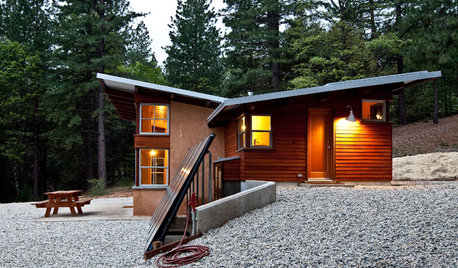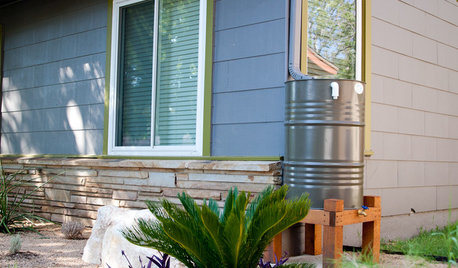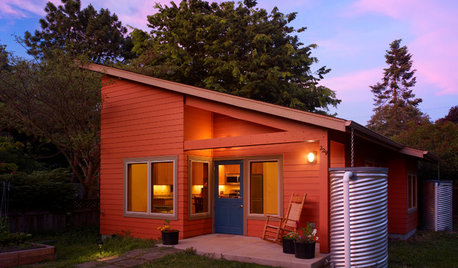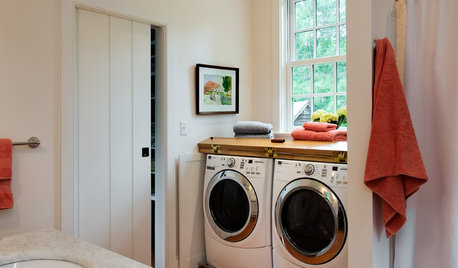Tankless Water Heater system,cost effective compared to Gas Tank?
markbr
18 years ago
Related Stories

GREAT HOME PROJECTSHow to Switch to a Tankless Water Heater
New project for a new year: Swap your conventional heater for an energy-saving model — and don’t be fooled by misinformation
Full Story
GREAT HOME PROJECTSHow to Add a Solar Water Heater
Lower energy bills without a major renovation by putting the sun to work heating your home’s water
Full Story
HEALTHY HOMEHow to Choose a Home Water Filtering System
Learn which water purification method is best for your house, from pitchers to whole-house setups
Full Story
GREAT HOME PROJECTSHow to Add a Radiant Heat System
Enjoy comfy, consistent temperatures and maybe even energy savings with hydronic heating and cooling
Full Story
LIFEThe Top 5 Ways to Save Water at Home
Get on the fast track to preserving a valuable resource and saving money too with these smart, effective strategies
Full Story
SAVING WATER11 Ways to Save Water at Home
Whether you live in a drought-stricken area or just want to help preserve a precious resource, here are things you can do to use less water
Full Story
GREEN DECORATINGEasy Green: Big and Small Ways to Be More Water-Wise at Home
These 20 tips can help us all make the best use of a precious resource. How do you save water in summer?
Full Story
GREEN BUILDINGHow to Harvest Rainwater for Your Garden
Conserve a vital resource and save money by collecting stormwater for irrigation in a barrel or tank
Full Story
EARTH DAYGrow a Beautiful Garden With Ecofriendly Greywater
Reducing home water waste means lower bills and a healthier planet. Here's how to set up a greywater home irrigation system that can help
Full Story
GREEN BUILDINGWater Sense for Big Savings
Keep dollars in your pocket and preserve a precious resource with these easy DIY strategies
Full StoryMore Discussions






mark_fleming
ojaijohn
Related Professionals
Plainview Kitchen & Bathroom Remodelers · Sunrise Manor Kitchen & Bathroom Remodelers · Bay Shore Kitchen & Bathroom Remodelers · Albuquerque Kitchen & Bathroom Remodelers · Bethel Park Kitchen & Bathroom Remodelers · Crestline Kitchen & Bathroom Remodelers · Franconia Kitchen & Bathroom Remodelers · Independence Kitchen & Bathroom Remodelers · Kettering Kitchen & Bathroom Remodelers · Las Vegas Kitchen & Bathroom Remodelers · Park Ridge Kitchen & Bathroom Remodelers · San Juan Capistrano Kitchen & Bathroom Remodelers · Vashon Kitchen & Bathroom Remodelers · Gibsonton Kitchen & Bathroom Remodelers · Eufaula Kitchen & Bathroom Remodelersdadoes
ojaijohn
davidandkasie
ojaijohn
montanax
jca1
dadoes
lazypup
jca1
dadoes
baxxter
friedajune
friedajune
kaytee1968
dadoes
lazypup
friedajune
jca1
lazypup
mark_fleming
Katy
fixizin
fixizin
fixizin
Katy
fixizin
Katy
brent_greenthumb
wldsyd
sdtc
jeff_nj
jeff_nj
joereich
ojaijohn
speedymonk
dt1234
squ1rrel
fred_derf_fred_derf
fahrenheit_451
dt1234
zl700
mungo
chris8796
fixizin
zl700
fixizin
zl700
zl700